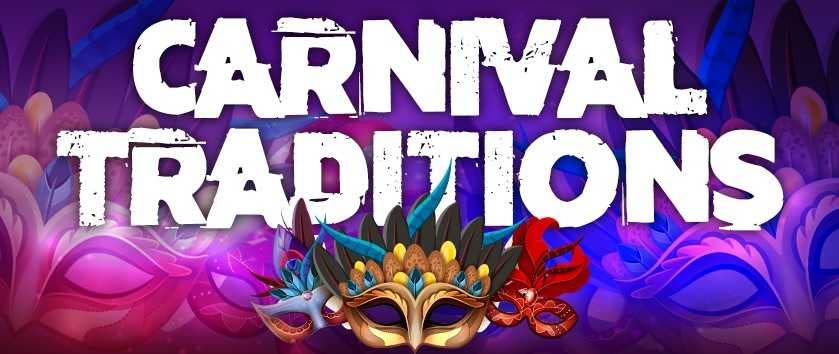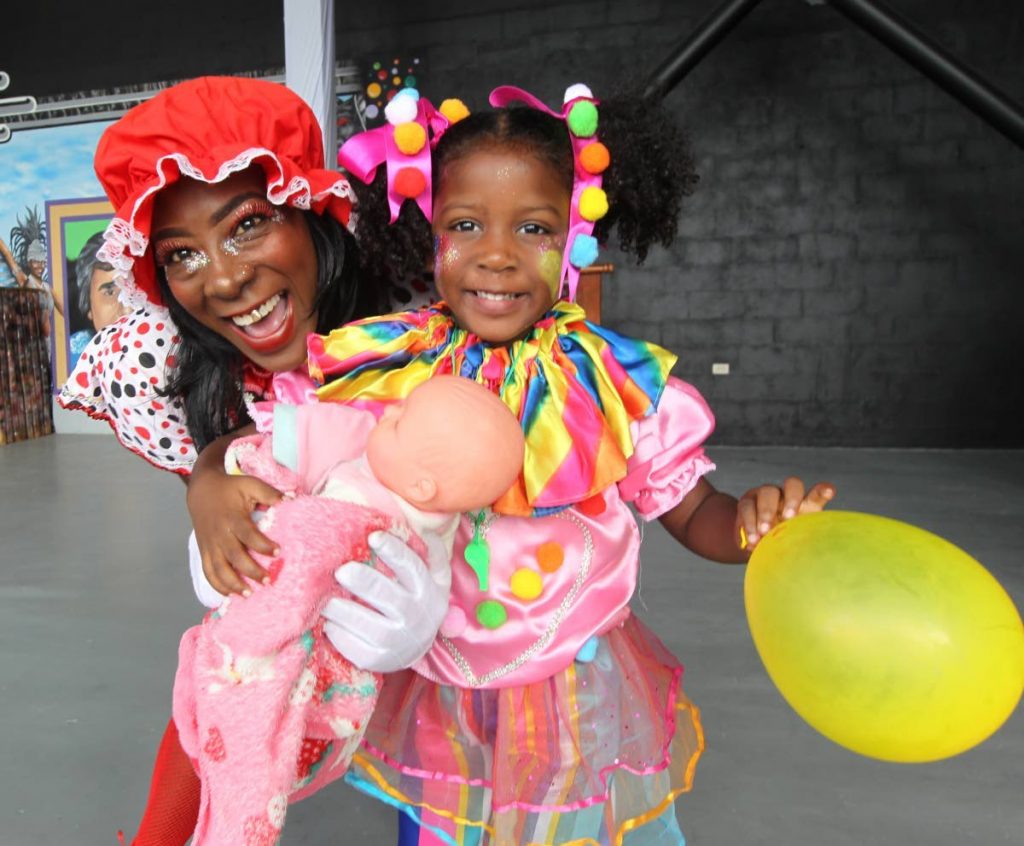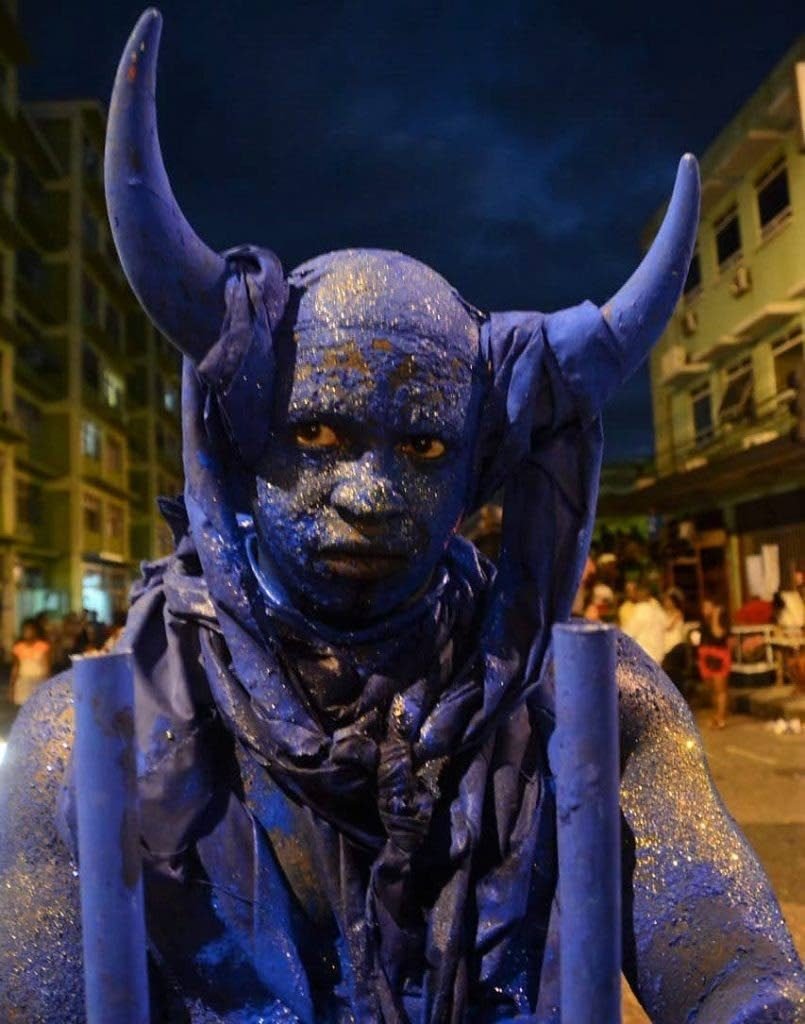Extortion mas –baby dolls and devils

BABY DOLLS and devil masqueraders might not seem to have much in common, but these two J’Ouvert characters once served poor people well as a type of “extortion mas.”
Before 1930s, baby doll masqueraders terrorised the streets during Carnival. Clad in bright, frilly dresses and large, flamboyant hats, these women carried a baby doll in their arms as they prowled the streets to confront men about being their illegitimate baby’s father.

Women who played this mas were portrayed “…as a young, shallow, unthinking, promiscuous female(s),” writes Jeff Henry in Under the Mas’ Resistance and Rebellion in the Trinidad Masquerade.
But baby doll mas had a practical purpose. By shouting insults and accusations and demanding money from men on the street, in this way some women made some money to help take care of their children.
Forms of the devil mas also sometimes served as an “extortion” mas. There are about 45 variations of devil mas. Most involve some type of antics like cracking a whip or spitting fire.

Carnival devils are intimidating characters captured perfectly in Pay de Devil, the late Winston “Shadow” Bailey’s soca about Abyssinia, Tobago’s most famous devil masquerader. Abyssinia demanded money from people to pass him on the road.
Today, devils covered in blue paint instil fear in masqueraders just by walking close to them. Some carry pitchforks and flambeaux. Many wear wings and sport hideous masks or horns as they blow their whistles and dance in jerky motions to J’Ouvert rhythms beaten on biscuit tins and bamboo.
Although baby dolls are no longer prevalent, jab jabs are thriving. In the past, they both played an important function in TT’s mas. They gave a voice to poor masqueraders who couldn’t afford fancy costumes. Baby dolls and devils allowed men and women to confront the upper-class society that marginalised them.
This masquerade also often transcended protest to serve an important economic role that provided a sense of irony in Carnival. While others paid money to play mas, baby dolls and devils collected money from unsuspecting spectators, who thought they could sit on the fence over the socio-economic issues that plagued the country – even during Carnival.

Comments
"Extortion mas –baby dolls and devils"